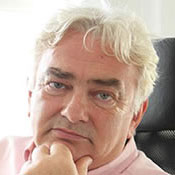The Covid-19 pandemic has increased levels of depression amongst the UK population. Adrian Hosford FRSA reports on an innovative mental health project, with its routes in the RSA, which is adapting to the challenge of providing lay counselors to those in need.
In 2015 the RSA project Connected Communities backed a unique trial called ‘Talk for Health’ providing therapy without therapists by training key members of the community as lay counsellors, giving them the confidence and knowledge to take the therapists’ skills of empathy, non-judgemental listening, and conversational support out of the doctors’ surgery and into the hands of the community.
Independent evaluation by Roehampton University Independently shows that this form of fast access to therapeutic talk is effective, long-lasting and empowering and that the trial made a significant breakthrough in mental health by proving lay counsellors are as effective as trained therapists.
The evaluation by a Research Psychologist at the university used the Outcomes Rating Scale (ORS) pioneered by the American psychologists Scott Miller and Barry Duncan. The ORS is a scientific way of measuring wellbeing effects of talking therapies and uses a 40-point scale where a score of less than 25 registers clinical distress.
The evaluation analysed the pre-post programme wellbeing of 687 participants and show a large rise in wellbeing after the Talk for Health programme and reduced depression over the long term. These results are similar to successful therapy. Two-thirds are clinically distressed at intake, with a wide range of diagnoses, from depression and anxiety, to schizophrenia.
Depression before and after the programme was recently measured amongst 71 participants using the PHQ-9, the standard NHS assessment. It showed that participants experienced a large rise in wellbeing after the four-day Talk for Health programme, and remain free of clinical depression over the long term.
The evidence base behind Talk for Health is based on three powerful evidence-based principles:
- Simply having the skills and opportunities to share inner feelings and experiences with supportive others improves mental health and prevents mental illness (Cooper, 2008);
- Effective therapeutic talk does not rely on professionals (Christensen and Jacobson, 1994); and
- That it is good for mental wellbeing to give as well as receive support (Riessman, 1990).
Talk for Health is highly inclusive; 59% of our intake are from black and minority ethnic communities, compared to 16% in NHS therapies.
The need is great. One in four people experience mental distress in the UK, but only 20% of them get NHS therapy. There is a shocking shortage, waiting lists are long, treatments short and more than 50% have repeated periods of mental poor health. Covid-19 has made things much worse. with, according to the Office of National Statistics (ONS), depression rates doubling since the onset of the pandemic.
To respond swiftly, Talk for Health transformed their service to online and phone formats. Since then they have had double the usual numbers ask for help, many in dire distress. The online version has proved equally successful.
Decades of evidence have demonstrated that, with a bit of skill, lay people achieve equivalent results to seasoned therapy professionals. By harnessing the power of lay people, Talk for Health enables a sustainable future for therapeutic talk, making it accessible to all in the long term. After all we know that creating community bonds has far more far reaching impact on wellbeing than just targeting troubled individuals.
Adrian Hosford is the ex Director of BT responsible for brand, campaigns like 'Its good to talk" and corporate social responsibility. He is Chairman of Moodscope, an online mental health service with 50K users, and a member of the advisory board for Talk for Health. Find out more about Talk for Health.
Related articles
-
-
Building a resilient health and care system
Matthew Swindells
Matthew Swindells on our health & care system's recovery.
-
Healthier placemaking
Fred London FRSA
Fred London FRSA on 'walkable communities' and how urban design might help us all lead healthier lives and overcome barriers.




Be the first to write a comment
Comments
Please login to post a comment or reply
Don't have an account? Click here to register.